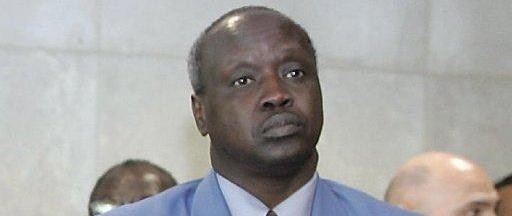South Sudan’s Foreign Minister Nhial Deng Nhial announced that his government ‘unreservedly endorsed’ a September proposal on Abyei by the African Union mediation, which Khartoum has rejected. He was addressing African leaders at a council meeting yesterday in Addis Ababa. The minister’s colleague Luka Biong Deng likewise expressed support for the September proposal and criticized a more recent proposal by the mediation.
The remarks of the South Sudanese officials suggest reluctance to resume direct negotiations and rejection of compromise elements introduced by mediators into their October proposal after Khartoum rejected the previous one.
Sudan and South Sudan agreed in late September to refer the unresolved Abyei issue to the AU Peace and Securiy Council. The mediation panel, led by former South African President Thabo Mbeki, will present recommendations to the Council on how to rule in the case. It is expected then that the AU Council may propose a mechanism for resolution of the conflict – perhaps in line with the original referendum plans laid out in the Abyei Protocol of 2005 – rather than outright offer its own solution.
“The Panel’s last compromise proposal on Abyei, put to the parties in September, was very clear. Sudan had no basis for rejecting it,” Nhial said yesterday in Addis Ababa in his address to the African Union Peace and Security Council.
According to a prepared statement of Nhial’s remarks, he added: “South Sudan has practically run out of compromises and the Republic of Sudan must accept that a referendum in Abyei be held by October 2013, and the referendum commission must be chaired by a nominee of the African Union. We invite the Council to issue a decision that is fully consistent with the Panel’s last proposal.”
The minister went on to say that South Sudan ‘unreservedly endorsed’ the September 21 proposal of the African Union High Implementation Panel.
Luka Biong Deng, chair of the Abyei Joint Oversight Committee, told Sudan Tribune website on Tuesday that the mediation should not have modified the September proposal to extend negotiations six weeks.
Biong told the website: “We received last night the report that will be presented by AUHIP to the AUPSC on 24 October. It includes a number of suggestions about the final status of Abyei. The AUHIP is asking for the extension of six weeks for parties to continue negotiating the final status of Abyei. This position is not consistent with the AU Roadmap and the UN Resolution 2046.”
Another objection came to the mediation’s proposal to immediately implement temporary administrative arrangements. The two sides cannot agree on whom to appoint to key positions, such as the Speaker of the Abyei Legislative Council. According to an extract of the AUHIP proposal, the two countries “should, no later than two weeks after the AUPSC meeting, implement the entire of the Agreement on Temporary Agreements, especially the establishment of the Abyei Area Administration and the Abyei Area Council.”
But the crux of the current dispute, according to Nhial, is whether to resolve the matter by referendum or partition: “Whereas South Sudan maintains its commitment to a referendum as the sole mechanism for determining Abyei’s final political status and in conformity with the Abyei Protocol, the Republic of Sudan has clearly embarked on a new trajectory; namely partition.”
“The Referendum and Partition trajectories run in parallel and are therefore irreconcilable. What this means in practice, is that even if the parties and at whatever level were to resume negotiations on Abyei, they would certainly not be able to do so and reach agreement since they do not share a single common premise. It will be like going back to the drawing board. In our opinion such an eventuality must be avoided at all cost,” he told the Council.
By Radio Tamazuj




